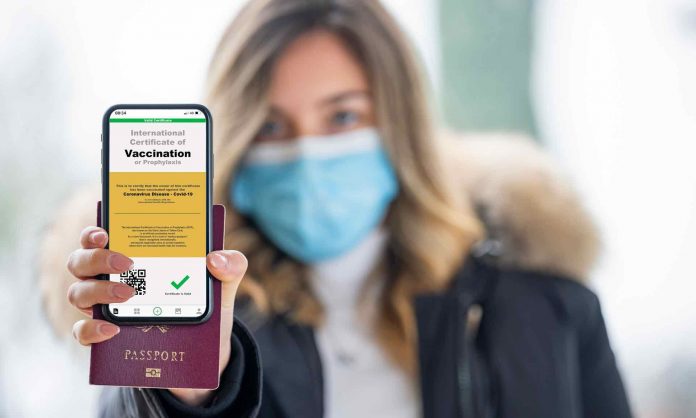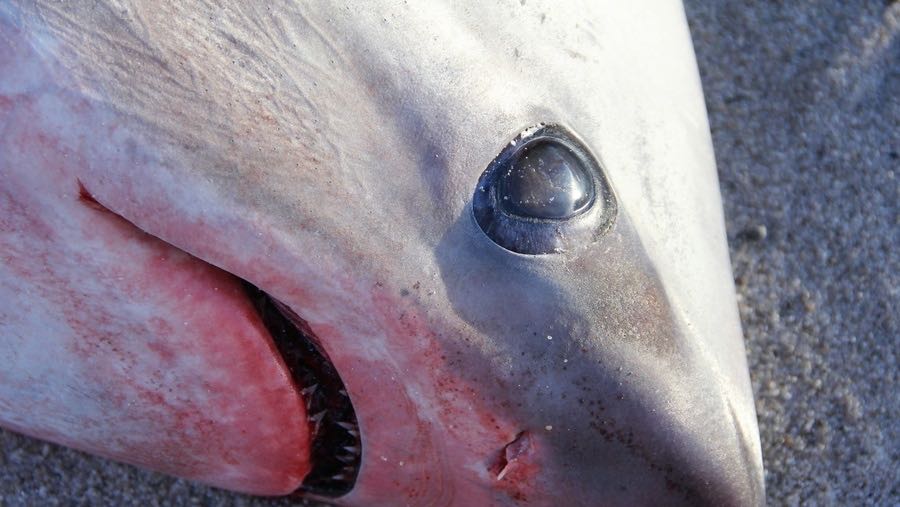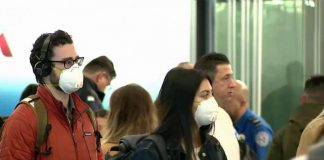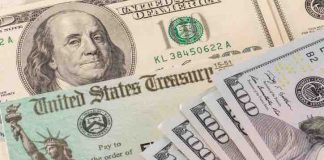
The idea of a “vaccine passport” was bound to come up in Pennsylvania as more people get vaccinated against COVID-19.
The discussion started Tuesday. It doesn’t seem like it’s going to lead anywhere, though. And that’s good.
A passport requirement should be out of bounds for government, at the local, state and federal levels. They shouldn’t stand in the way of businesses using them if they choose. But public officials should let the market dictate that.
Democratic Gov. Tom Wolf and Republican House Majority Leader Kerry Benninghoff weighed in on the issue Tuesday.
When asked about passports, Wolf initially said he didn’t “really have a position.” Then he said he would support it, if something was initiated by the Legislature.
“You know, you used to have to have one when you traveled overseas. It was part of your passport. It was a yellow card that showed what immunizations you’d had. So I’m not sure. I would think that that would be a fairly easy thing to do.”
The Republican-controlled Legislature isn’t going to endorse a passport.
Benninghoff, of Centre County, called on the governor and lawmakers to oppose “this ill-conceived idea.”
”The swift deployment of the COVID-19 vaccine is necessary for a return to normal, but that normal cannot include government-sanctioned monitoring of an individual’s health and the unfair selection of those who can return to normal and those who cannot,” Benninghoff said in a news release.
“We have constitutional rights and health privacy laws for a reason. They should not cease to exist in a time of crisis. These passports may start with COVID-19, but where will they end?”
He’s wrong on that last point. The state government already has a passport of sorts.
It requires students to be vaccinated against measles, mumps, hepatitis B, polio, diphtheria and other diseases. Exceptions are granted for medical reasons and for religious and philosophical objections.
Since the state funds and regulates public schools, that is appropriate. It’s also sound public health policy. Schools could be breeding grounds for disease if they were full of students who aren’t immunized.
But government shouldn’t be requiring people to show papers to leave their homes and mingle in public. And it shouldn’t meddle in what owners of stadiums, concert venues, airplanes, movie theaters, restaurants, cruise ships and others do on their property.
Businesses have the right to require customers to follow safety rules, including being vaccinated or testing negative, as long as they follow the Americans with Disabilities Act.
Now, that’s unlikely to occur often.
Do you really think stores, businesses and other places that can’t be bothered now to make sure customers enter with a mask are going to demand a vaccination passport or card?
Plus, they’re not going to want to risk being sued.
But it’s a greater possibility in places where there’s a demand for entry and where a requirement would be easier to police.
Rutgers University said last week that all students will have to be vaccinated to attend class in-person in the fall. They may request a medical or religious exemption.
An Australian airline, Qantas, announced plans for later this year to require passengers on international flights to prove they were vaccinated.
“The Qantas Group acknowledges some people have concerns regarding vaccines. However, we believe we have a duty of care to everyone on board our aircraft to create a safe environment. All our policies are ultimately shaped by this,” the airline said on its website.
And Ticketmaster is preparing in case venues that use its service require proof of a negative COVID-19 test or a vaccination. It is exploring technology that could link a person’s vaccination record with their ticket.
“This would allow fans to enter an event with one scan of their ticket, rather than entering and then having to wait in another line to show their health verification,” it says on its website.
Health information would not be stored with Ticketmaster, but with a health care provider.
In February, New York announced that sports stadiums and entertainment venues with capacities of 10,000 or more could reopen to limited crowds if they ensure all staff and spectators receive a negative COVID-19 PCR test within 72 hours of the event.
New York officials worked with IBM to develop the “Excelsior Pass” to make that easier. It has been tested at events at Madison Square Garden.
Pennsylvania has not imposed similar requirements for negative tests or vaccinations, and I am not aware of any venues that have. But as state officials gradually ease restrictions, it’s possible that some sites could consider a requirement, to give customers the confidence that their properties are safe. It could be a selling point.
As long as they follow ADA guidelines to accommodate those who cannot be vaccinated for medical reasons, I see no problem with that. Accommodations also would have to be made for people without smartphones.
But the state shouldn’t get into the business of developing its own app, endorsing an app or requiring people to use a passport.












